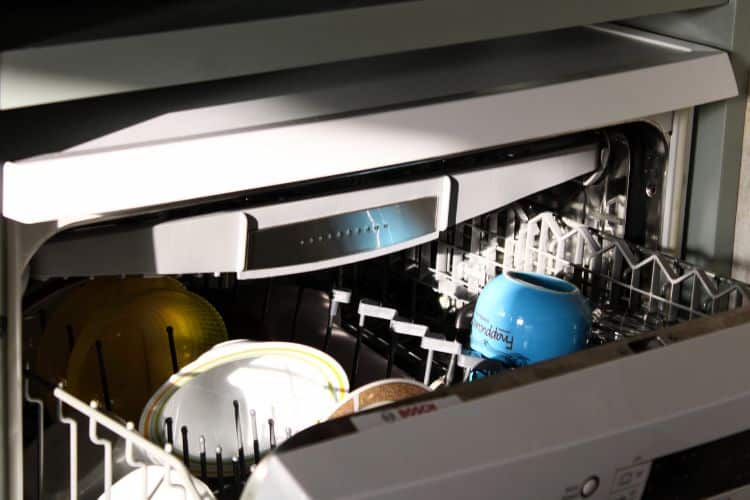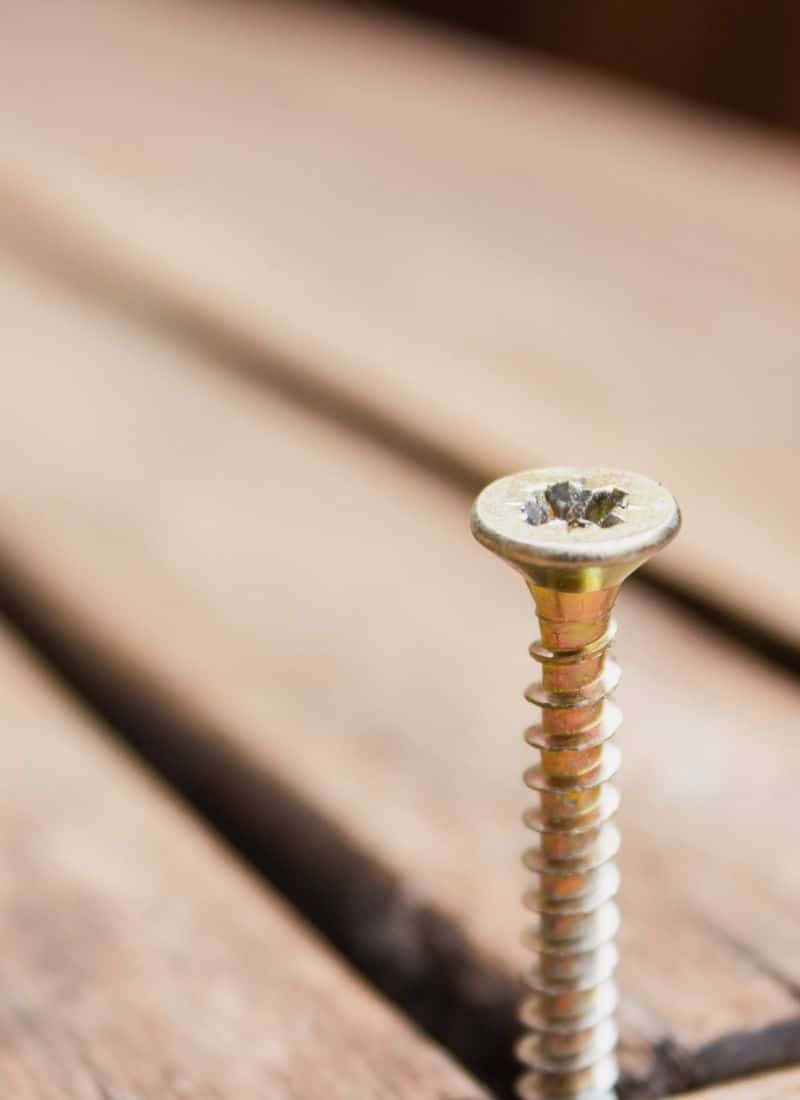
The dishwasher has become an indispensable appliance for many households in the quest for a sparkling clean kitchen. However, have you ever encountered a situation where you’ve run out of dishwasher soap? Perhaps you’ve wondered if skipping the soap altogether and achieving clean, spotless dishes are possible.
Running the dishwasher without soap is possible but may not effectively clean and sanitize your dishes. Exploring alternative methods and cleaning agents is crucial for achieving satisfactory results.
In this article, we delve into the intriguing world of alternative dishwashing methods, exploring whether it’s feasible to run the dishwasher without soap and what alternatives may exist for achieving that sought-after shine. Prepare to embark on a journey that challenges conventional wisdom and sheds light on the possibilities of a soapless dishwasher cycle.
The Soap Dilemma: Running the Dishwasher Without Soap
The soap dilemma poses an intriguing question: Can you run the dishwasher without soap? While it may seem tempting to skip the soap when you find yourself running low or out of dishwasher detergent, the effectiveness of this approach is questionable. Dishwasher soap is vital in breaking down grease, removing food particles, and sanitizing your dishes. Without it, you risk ending up with dishes that are not thoroughly cleaned or sanitized, compromising their hygiene and leaving behind residue or unpleasant odors.
Exploring alternatives becomes imperative in such situations. Some individuals opt for natural cleaning agents like vinegar and baking soda, which can help remove stains and odors. However, these alternatives may not possess the same cleaning power as dedicated dishwasher detergents. Other options include using citric acid or lemon juice, which can aid in cutting through grease and adding a pleasant scent to your dishes. Additionally, enzyme-based dishwasher detergents have gained popularity for effectively breaking down tough stains and food particles.
While running the dishwasher without soap may be possible, it’s important to carefully evaluate the results. Dishwashing without soap may be suitable for items that require a light wash or have been thoroughly rinsed beforehand. However, a quality dishwasher detergent is recommended for optimal cleaning and sanitization. Exploring alternative methods and finding the right cleaning agent for your needs can help balance convenience and achieving sparkling, hygienic dishes.
Related posts you may like: Dishwasher Soap Dispenser Opens But Soap Remains Inside It: Here’s How To Fix It
Understanding Dishwasher Soap and Its Role in Cleaning
Dishwasher soap plays a crucial role in achieving clean and sanitary dishes. Understanding its composition and function can explain why it is essential for effective dishwashing. Dishwasher soap, also known as dishwasher detergent, is specifically formulated to tackle the unique challenges of dishwashing. It contains a combination of surfactants, enzymes, builders, and other ingredients that work together to remove grease, food particles, and stains from your dishes.
Surfactants in dishwasher soap help to lower the surface tension of water, allowing it to spread and penetrate more easily. This helps the soap effectively break down and remove grease and food residue from your dishes. Enzymes in the detergent act as catalysts, targeting specific types of stains and helping to break them down.
Builders, such as phosphates or citrates, are responsible for water softening and preventing mineral deposits from forming on your dishes. They help improve the detergent’s effectiveness by ensuring it can work optimally in hard water conditions. Additionally, dishwasher detergents may contain additives like bleach or enzymes that aid in disinfection and stain removal.
By understanding the role of dishwasher soap, it becomes clear that it is not merely a cleaning agent but a carefully designed product tailored to the challenges of dishwashing. Its formulation efficiently removes food particles, grease, and stains while promoting hygiene and preventing mineral buildup.
Exploring the Feasibility of a Soapless Dishwashing Cycle
Exploring the feasibility of a soapless dishwashing cycle raises intriguing questions about the effectiveness of alternative methods and their potential to replace traditional dishwasher soap. While it may be tempting to consider a soapless approach for various reasons such as cost savings or environmental concerns, evaluating its practicality and outcomes is essential.
Running a soapless dishwashing cycle can be attempted by relying solely on hot water and the mechanical action of the dishwasher. However, it is important to note that soap serves several crucial purposes beyond just cleaning. It helps to break down grease, remove food particles, and sanitize dishes, ensuring they are hygienically clean.
In a soapless cycle, without the surfactants and enzymes present in dishwasher soap, there is a risk that stubborn stains, grease, and residues may not be effectively removed. This can result in dishes that are visibly dirty or have lingering odors. Furthermore, without the sanitizing properties of dishwasher soap, bacteria, and other harmful microorganisms may not be adequately eliminated, compromising the cleanliness and safety of your dishes.
Exploring the feasibility of a soapless dishwashing cycle should also consider its impact on the dishwasher. The absence of detergent may accumulate mineral deposits and residue on the dishwasher’s internal components, potentially affecting its performance and longevity.
While experimenting with soapless dishwashing can be intriguing, it is important to approach it with realistic expectations. A soapless cycle may be suitable for items that require only a light wash or have been pre-rinsed thoroughly. However, using quality dishwasher soap remains the recommended approach for optimal cleanliness and sanitation.
Related posts you may like: Is There A Standard Size For A Kitchen Countertop? Heights & Widths Explained
Alternative Methods for Clean Dishwashing: Pros and Cons
Alternative methods for clean dishwashing offer potential solutions for situations where traditional dishwasher soap is unavailable or when individuals prefer alternative approaches. Some common alternatives include natural cleaning agents like vinegar and baking soda, citric acid or lemon juice, or enzyme-based dishwasher detergents. These alternatives have their pros and cons. Natural cleaning agents are readily available, affordable, and environmentally friendly, but they may not have the same cleaning power as dedicated dishwasher detergents. Citric acid and lemon juice offer effective grease-cutting properties and a fresh scent but may not provide thorough sanitization. Enzyme-based detergents excel at breaking down tough stains and food particles, but they can be more expensive. Exploring these alternatives allows individuals to choose the method that aligns with their preferences and needs, balancing convenience, effectiveness, and environmental considerations.
| Method | Pros | Cons |
| Natural cleaning agents (vinegar, baking soda) | Readily available, affordable, eco-friendly | May have limited cleaning power |
| Citric acid or lemon juice | Effective grease-cutting properties, pleasant scent | May not provide thorough sanitization |
| Enzyme-based dishwasher detergents | Excellent stain and food particle removal | It can be more expensive |
Vinegar and Baking Soda: Natural Alternatives to Dishwasher Soap
Vinegar and baking soda are popular natural alternatives to dishwasher soap that offer potential benefits for clean dishwashing. Vinegar, known for its acidic properties, can help break down grease, remove stains, and eliminate odors. It also acts as a natural rinse aid, leaving dishes sparkling and free of water spots. Baking soda, conversely, is a mild abrasive that aids in scrubbing away stuck-on food particles and stains. It also helps to neutralize odors and can contribute to a fresher-smelling dishwasher.
However, it’s important to note that while vinegar and baking soda can provide some cleaning power, they may not be as effective as dedicated dishwasher detergents when tackling tough stains or sanitizing dishes. Additionally, using vinegar and baking soda as alternatives may require experimentation to find the right quantities and combinations for optimal results.
Citric Acid and Lemon Juice: Effective Cleaning Agents for Dishwashers
When exploring alternatives to dishwasher soap, citric acid and lemon juice emerge as effective cleaning agents that can provide impressive results. Citric acid, derived from citrus fruits, offers excellent grease-cutting properties and effectively breaks down tough stains and food residue on dishes. Its acidic nature helps to remove mineral deposits and hard water buildup, enhancing the overall cleanliness and performance of the dishwasher. Using citric acid, you can expect your dishes to come out cleaner, with a refreshed shine.
Similarly, with its natural acidity, lemon juice is a powerful dishwasher cleaning agent. The citric acid in lemon juice acts as a natural bleach, effectively removing stains and discoloration from dishes. Additionally, lemon juice imparts a pleasant citrus scent, leaving your dishwasher and dishes smelling fresh and revitalized. Its natural properties make it a popular choice for those seeking a more natural and eco-friendly approach to dishwashing.
However, it’s important to note that while citric acid and lemon juice offer impressive cleaning properties, they may not provide thorough sanitization. Combining their usage with proper rinsing and other sanitation methods is advisable for optimal hygiene. Furthermore, experimenting with the right quantities and combinations of citric acid or lemon juice may be necessary to achieve the desired results with their effectiveness in cutting through grease and stains, citric acid and lemon juice present promising alternatives for clean dishwashing.
Related posts you may like: Should The Kitchen Faucet Match Cabinet Hardware? Exploring the Aesthetics and Design Harmony
DIY Dishwashing Pods: Crafting Your Own Soapless Solution
DIY dishwashing pods offer a unique and customizable approach to achieving a soapless solution for clean dishwashing. Making dishwasher pods allows you to control and tailor the ingredients to your preferences and needs. The basic recipe for DIY dishwashing pods typically involves a combination of ingredients like washing soda, citric acid, salt, and essential oils for fragrance. These ingredients work together to provide cleaning power and help tackle grease, stains, and food residue on dishes.
Crafting your soapless solution through DIY dishwashing pods has several benefits. Firstly, it allows you to avoid using traditional dishwasher soap, which may contain chemicals that some individuals prefer to avoid. Secondly, DIY pods can be cost-effective, as you can buy the ingredients in bulk and make a larger batch that will last longer. Additionally, you can customize the pods’ scent by choosing different essential oils, providing a personalized touch to your dishwashing experience.
However, it’s important to note that the effectiveness of DIY dishwashing pods can vary based on the recipe and ingredients used. Some DIY recipes may not match commercial dishwasher detergents’ cleaning power and sanitization capabilities. Therefore, it’s recommended to experiment and find a recipe that works well for your specific dishwasher and cleaning needs. Additionally, proper rinsing of dishes and regular maintenance of the dishwasher is essential to ensure optimal results when using DIY dishwashing pods.
Crafting your soapless solution through DIY dishwashing pods can be a fun and eco-friendly alternative. Still, it’s important to weigh the pros and cons and find a recipe that suits your requirements and achieves the desired level of cleanliness for your dishes.
Preparing Your Dishes for a Soapless Cycle: Scraping and Rinsing Tips
Preparing your dishes properly before running a soapless cycle in the dishwasher is crucial to ensure satisfactory cleaning results. Here are some scraping and rinsing tips to optimize the effectiveness of a soapless dishwashing cycle:
- Scrape off excess food: Before loading your dishes into the dishwasher, scrape off any large or solid food particles into the trash. This helps prevent the dishwasher’s filter from clogging and ensures the water can freely circulate during the cycle.
- Rinse lightly: While a soapless cycle may not require extensive pre-rinsing, a quick rinse under running water can help remove loose food debris. This step is particularly important for dishes with dried or stubborn residue.
- Soak if necessary: For dishes with tough, baked-on stains or dried-on food, consider soaking them in warm water and mild dish soap before loading them into the dishwasher. This pre-soaking step can help loosen and soften the stains, making them easier to remove during the soapless cycle.
- Load the dishwasher properly: Ensure that dishes are loaded properly, allowing sufficient space between them for water to reach all surfaces. Avoid overcrowding, as it can hinder proper water circulation and result in inadequate cleaning.
- Check dishwasher settings: Adjust the settings to the appropriate cycle and temperature for your dishwashing needs. Follow the manufacturer’s instructions for optimal performance and efficiency.
Following these scraping and rinsing tips can help maximize the effectiveness of a soapless cycle in the dishwasher. While a soapless approach may have its limitations, proper preparation of dishes can contribute to achieving cleaner and more satisfactory results.




